GMKTEC Xpanel SE Portable Monitor
Being able to divide a screen from the device driving it has many advantages. Critically, if the unit or screen fails, then the working part can still be used.
On the PC and Mac, a second screen can be used to expand the desktop or provide customer-facing output. And, used in conjunction with a mobile platform, it can effectively turn a phone or tablet into the equivalent of a laptop.
All these abilities sound useful to many tech users, but there is a financial threshold where the technology turns from being a nice-to-have into something customers will invest.
Today we’re looking at the Xpanel SE, a portable monitor aimed at those that want an additional screen for whatever purpose.
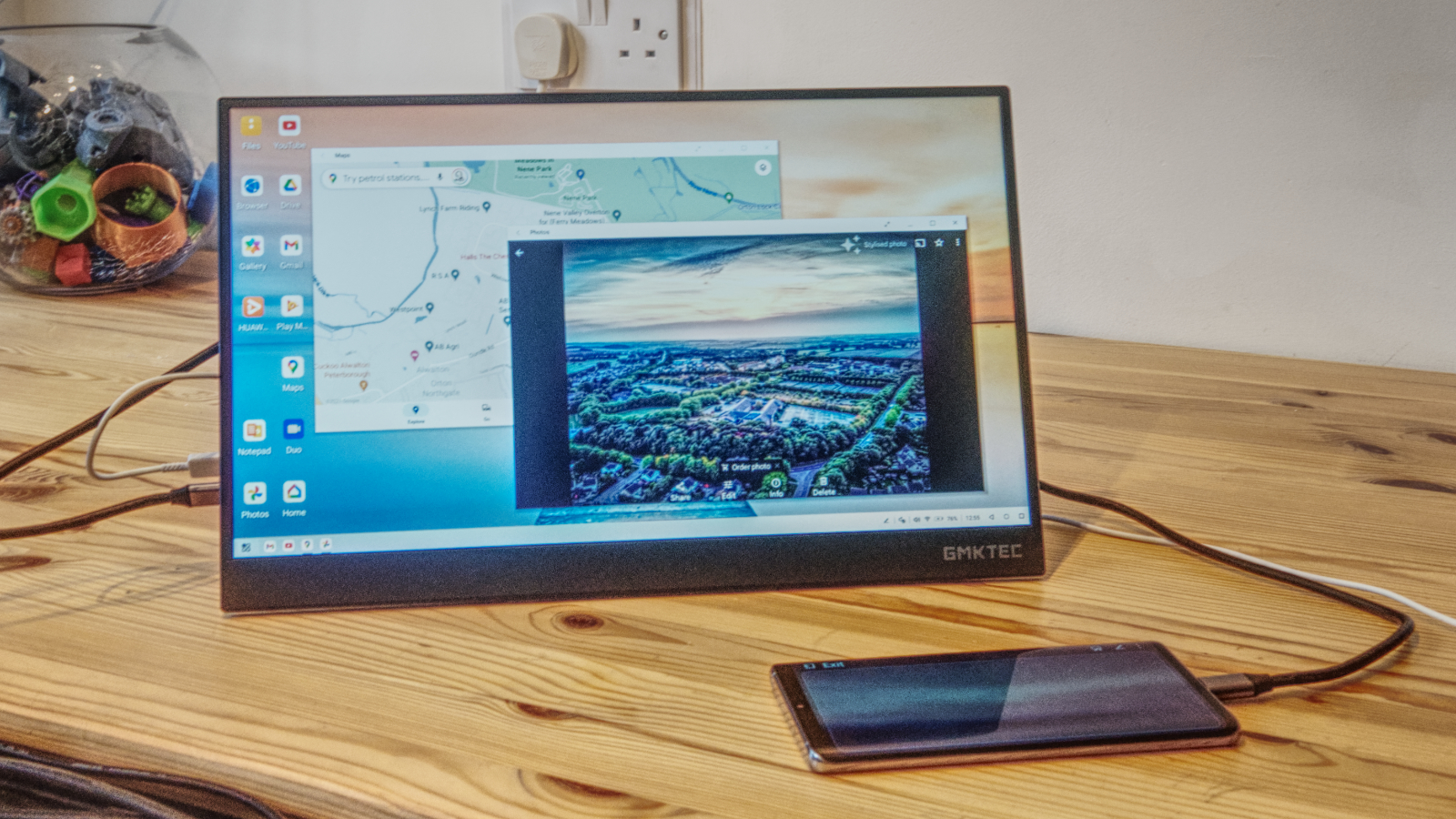
Price and availability
GMKTEC had been running a Black Friday deal on this product that reduced the price to $169.99, but the standard price for this delivered to the EU is $229.99 and $219.99 in the USA and Japan.
Depending on where you are, the monitor can ship from the USA, Japan or China, with those places outside the USA and Japan being supplied from China.
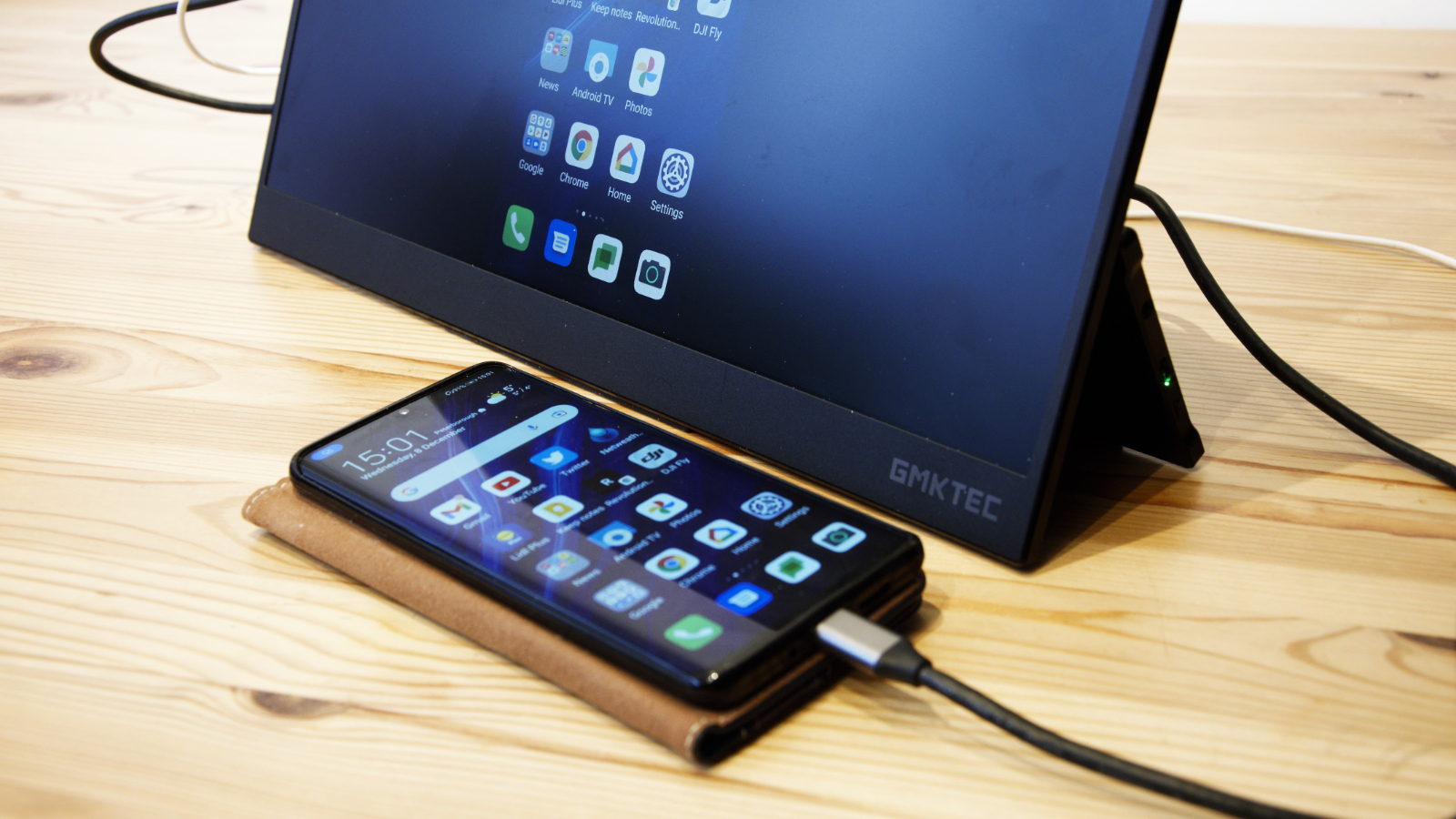
Design
Unless they have special features, like the Nexdock 360, most portable monitors are remarkably similar, being an LCD panel supported by a kickstand.
The Xpanel SE doesn’t paint outside those lines, and in that respect, new users will understand how to set it up without referring to any documentation.
The stand does allow for up to 90 degrees of tilt, and it can be folded flat if required.
On the left side of the stand edge are the inputs, with a Mini-HDMI and two USB-C ports, and on the right is the power button, a 3.5mm audio jack for headphones and a tiny toggle wheel for operating the OSD menu.
Power and charging are via USB-C, though no PSU is included in the box. The GMKTEC website lists a PSU as part of the package, so this might be a mistake with our package.
What we did get with the Xpanel was a good quality metre-long USB-C cable, a USB-A to USB-C cable and an HDMI to Mini-HDMI line.
There is also a single-sheet instruction pamphlet in English and Chinese, along with a cleaning cloth for the screen.
The 15.6-inch LCD panel has relatively narrow 5mm borders at the top and sides but a more substantial stripe at the bottom on which GMKTEC placed its logo.
As this isn’t a touch screen, the panel coating isn’t hard but soft, and thankfully GMKTEC makes a soft cover to protect it when travelling. Overall, the quality of construction is acceptable, but the documentation describes the screen as ‘fragile’, and they only offer a single year of warranty on this hardware.
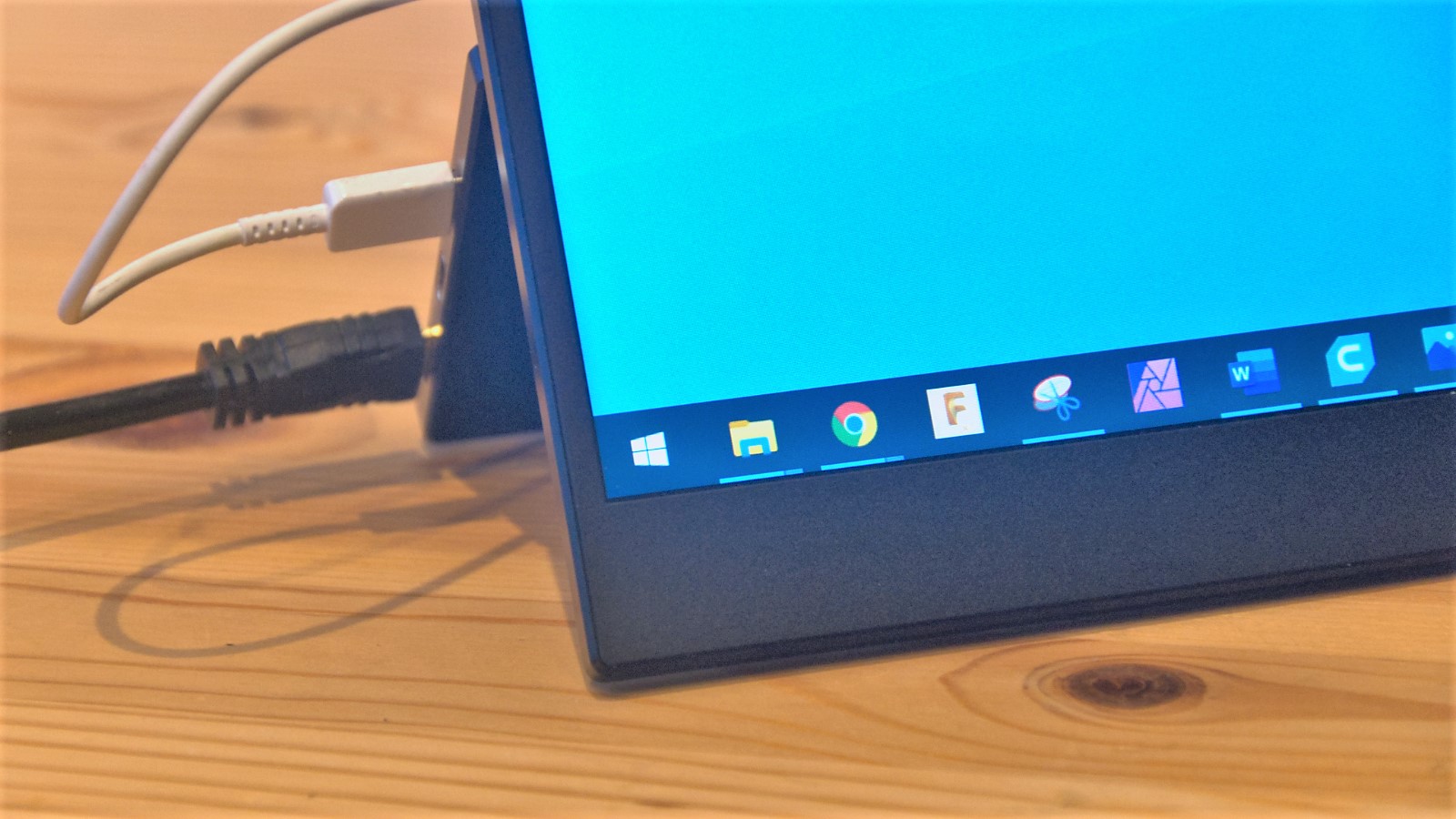
Technically, we suspect this is an IPS panel, though GMKTEC doesn't specifically say this in its documentation. Whatever it is, the design offers excellent viewing angles along with FreeSync and HDR functionality.
What we can say with more certainty is that the natural resolution of the display is 1080p, and not the 4K that the same company offers in an alternative 14-inch Xpanel product.
A slight disappointment compared with a few competitor products, like the Nexdock 360, is that the Xpanel has no internal battery.
It is possible to drive the screen from a phone, but that will reduce the battery life of that device considerably.
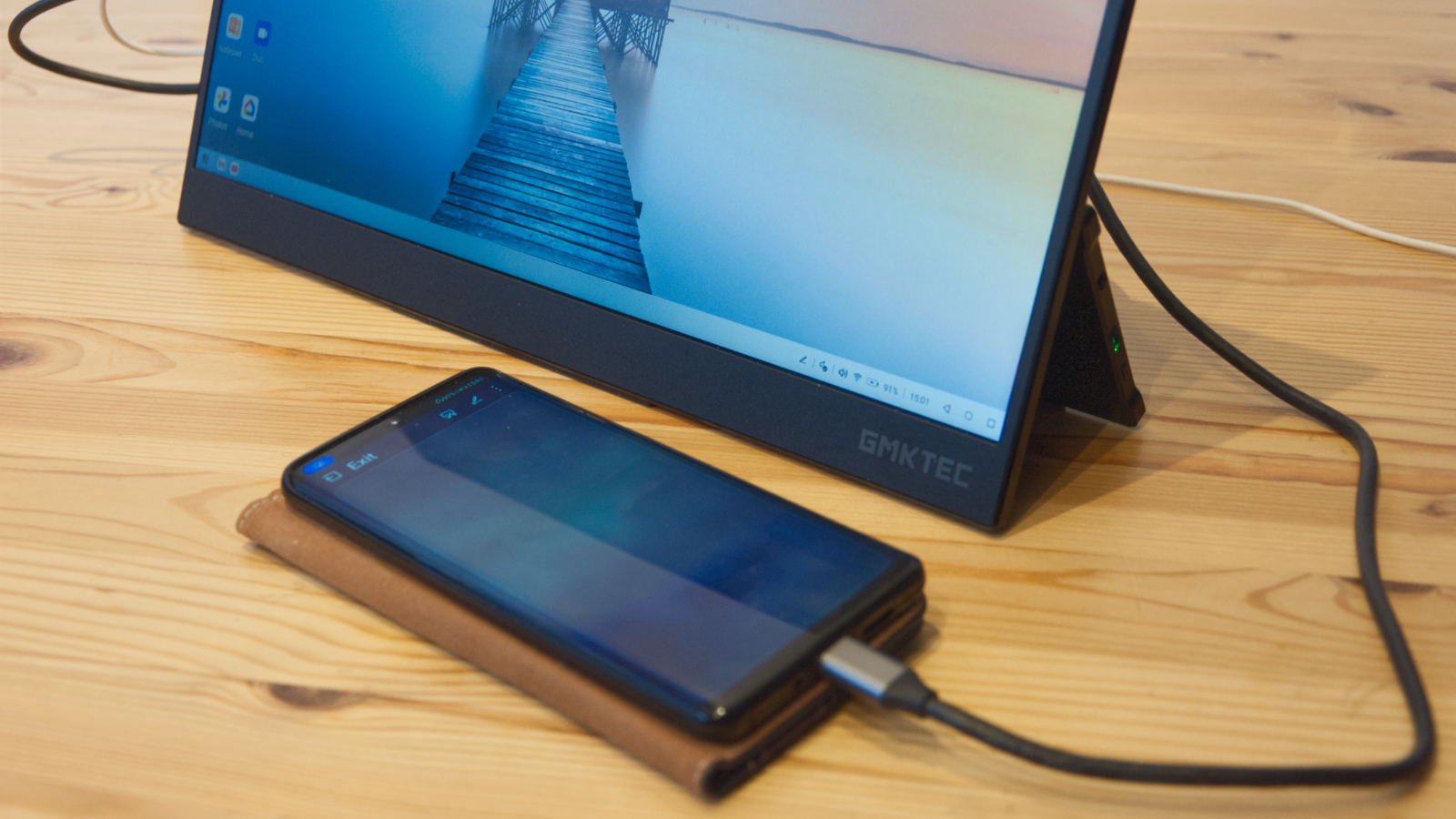
In Use
The user experience of this product ranges from being reasonably good to frustrating, depending on what it is that you are trying to achieve.
What works well is the overall concept of a plug and play monitor for anyone with a computer or device that supports either HDMI or DisplayPort over USB-C.
We tested it using the same Huawei P30 Pro that we deployed in the Nexdock 360 review, and it allowed the phone to operate in desktop mode for a Chromebook-like experience.
Along with Huawei, Samsung and Motorola make phones that offer this phone-as-a-PC functionality. This technology is also being added to Android by Google, making it likely that future mobile devices should include this functionality.
However, there is one weakness of the port layout that could have better served this use, and that’s the choice to provide two USB-C ports. While having two USB-C ports allows the Xpanel to be both powered and connected to a phone, an extra USB-A port might have been handy to attach a mouse or keyboard.
This is still possible by using a USB-C hub or by using Bluetooth peripherals, but that’s an additional expense for the user.
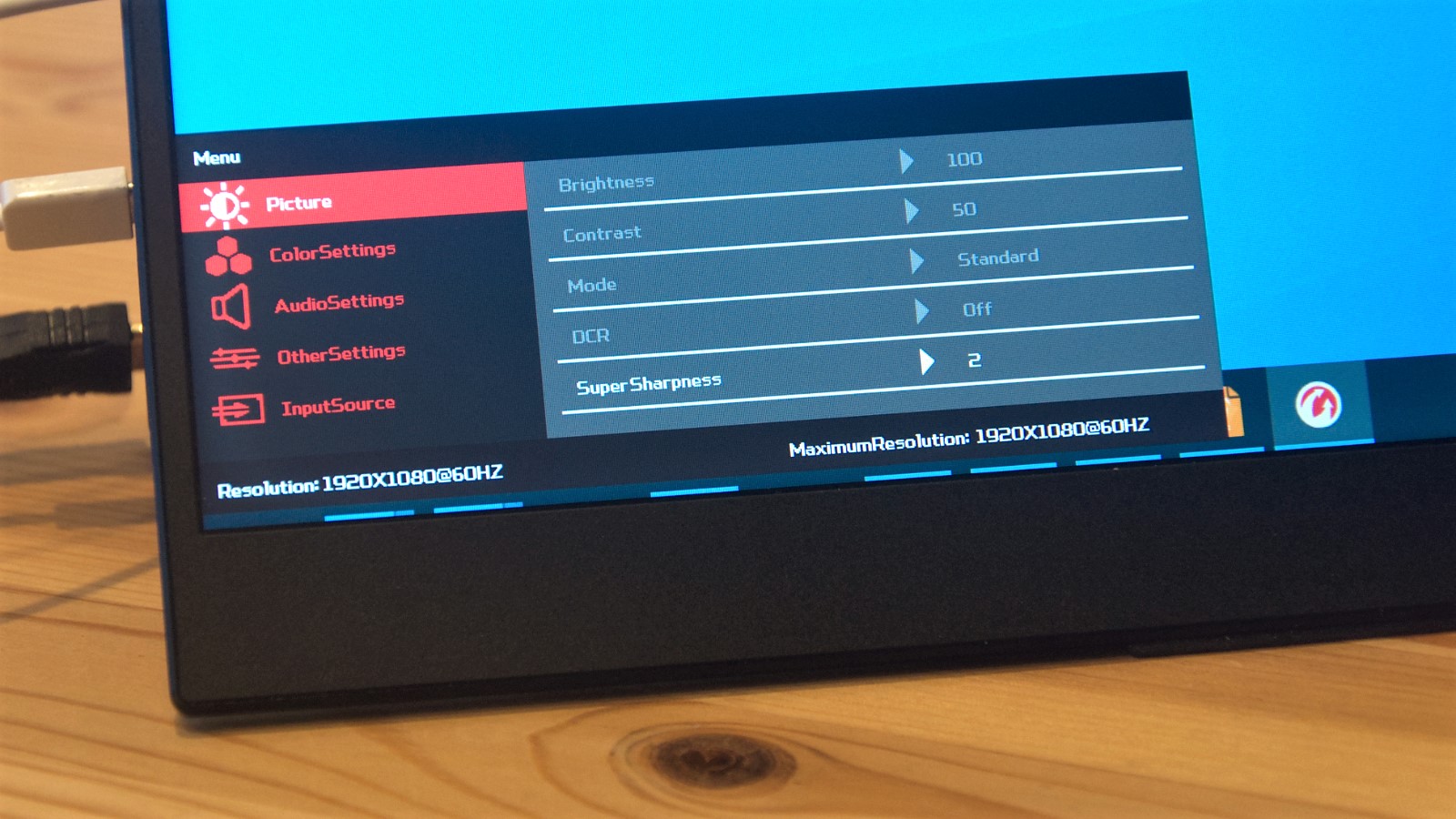
Where the Xpanel isn’t great is in respect of the OSD, or on-screen display. Not only is this menu incredibly small in proportion to the screen, but navigating it with a curiously tiny side-mounted thumbwheel gizmo is diabolically awkward. Maybe the size of the reviewers’ hands is an issue, but we suspect many users will find this counter-intuitive control challenging to master.
For those that can navigate around it, the menu contains the usual suspects of brightness, contrast and colour temperature controls, and also the ability to enable HDR and FreeSync.
You can also set the volume of the speakers, though putting them to 100% didn’t generate the level of volume we’d expected.
Unless you are in a completely silent space, the sound output isn’t sufficient to use the Xpanel for watching movies unless you use headphones.
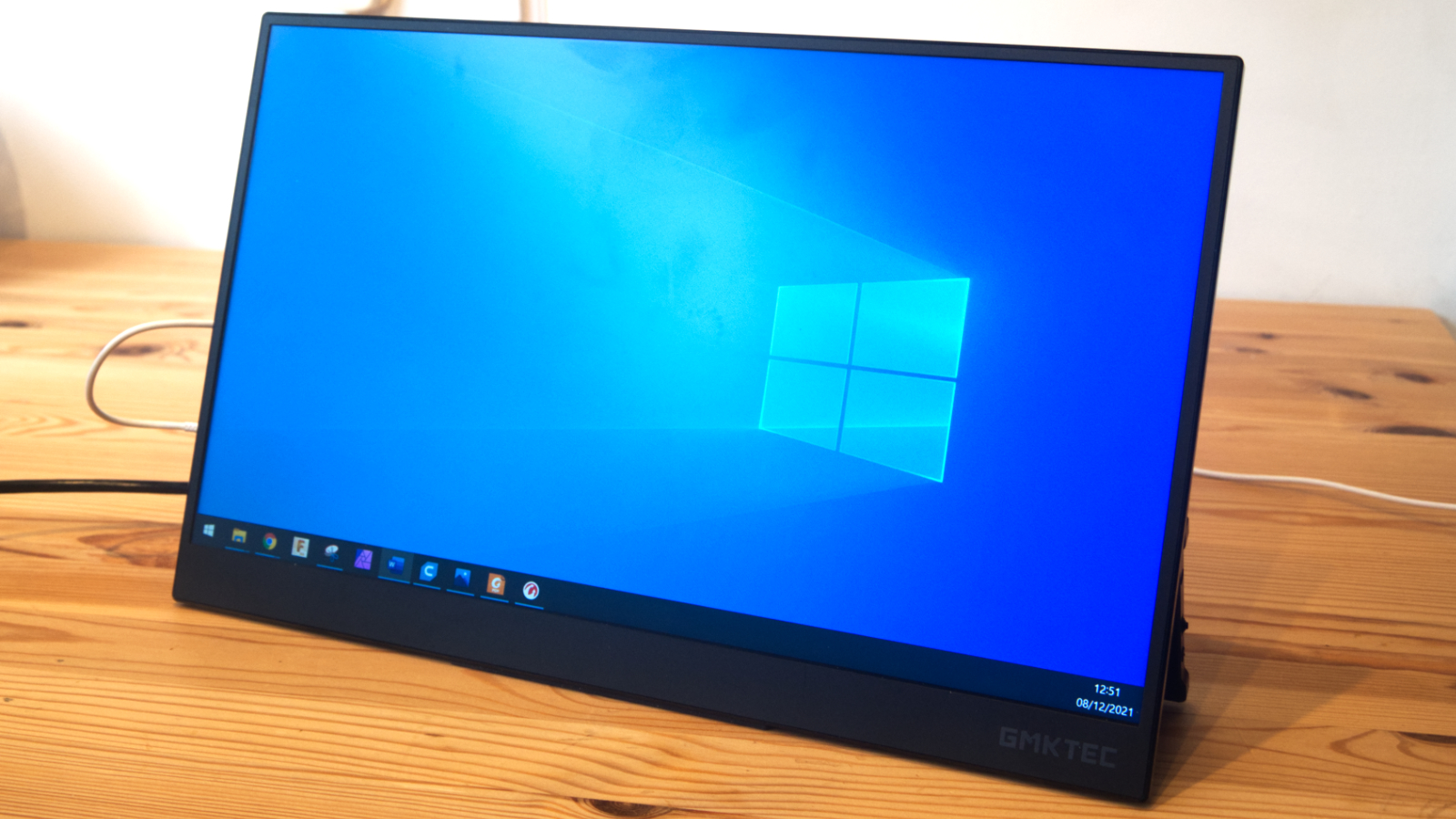
Performance
Most people won’t be considering this monitor for colour work, but we decided to run a display analysis to understand the limitations of this panel.
That revealed that the gamut of this screen is just 69% of sRGB and 51% of P3, sadly.
It does get close to a static contrast ratio of 1000:1, but the highest brightness was 231.6 cd/m2, much less than is required for HDR content.
The uniformity of brightness also isn’t great, but the colour uniformity is decent, and what colours it can generate it presents with reasonable accuracy.
Overall, not terrible but hardly anything to write home about other than the decent contrast levels.
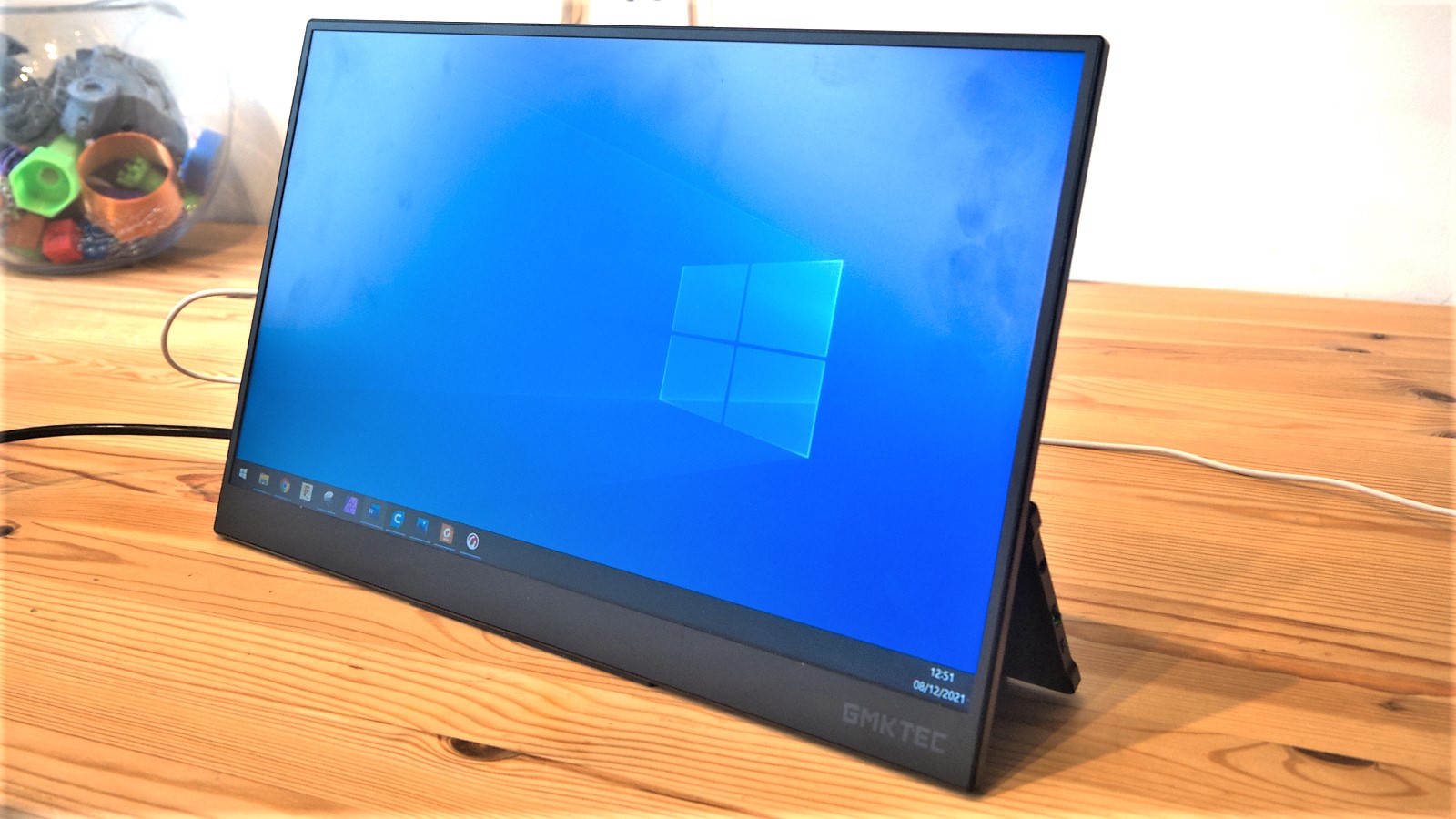
Competitors
Some of the competitor devices for the Xpanel are battery-powered, giving them a significant edge in portability over this solution.
Those in the same mains power only selection include the Viewsonic VG1655, an almost identical spec panel that costs £170.68 in the UK, and $249.99 in the US. The selling point of the VG1655 is that it comes with three times the warranty period of the Xpanel.
One of the alternatives is a 15.6-inch portable monitor branded by UPERFECT. It makes a 1080p design with USB-C, HDMI and Mini-DP inputs that can be orientated in portrait mode in addition to landscape. It also has the facility for VESA 75 mounting. These sell for just £152.99 in the UK and $199 in the US.
For brand fans, the ASUS ZenScreen MB16AC is a comparable specification, and the typical price for that option is $228.99.

Final verdict
This product has a place, but it isn’t one that fully justifies its price.
What we can say is that it delivers on most of the promises made by GMKTEC for it, as it works with desktop generating phones and with any device that can generate HDMI output.
Its portability is undermined by not having a battery, and Phone desktop users require a USB-C hub if they want to use a mouse and keyboard and don’t own Bluetooth connecting ones.
The screen, while far from exceptional, is fine for general use. But why HDR was included when the maximum brightness isn’t sufficient for creating the contrast levels needed is a mystery. And equally, FreeSync is a dubious inclusion on a system with a top refresh of only 60Hz.
When you factor in the low audio levels, this wouldn’t be our first choice for gaming or watching movies. Yes, you can do that, but it's not an ideal scenario.
The final issue is that this is priced to compete with branded products offering a very similar specification. And it does undercut a few, but GMKTEC only provides a single year of warranty, whereas the likes of ViewSonic offers three years cover.
At the Black Friday price of $169.99, the Xpanel might get some takers, but we’re unsure if it is worth the standard price with such a short warranty.
0 comments:
Post a Comment